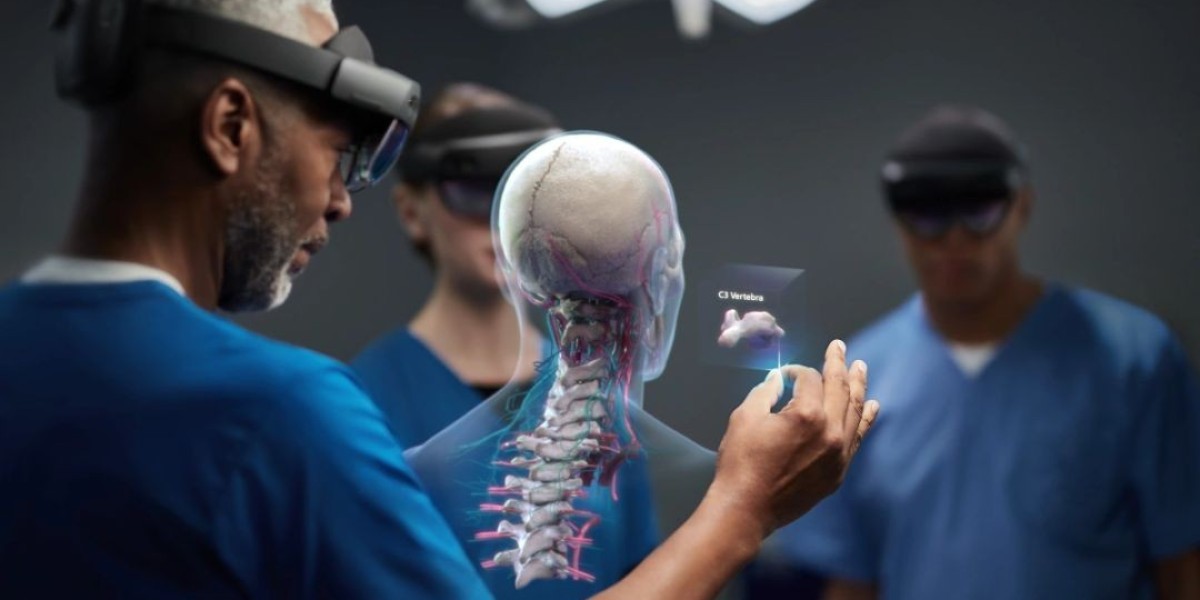By providing immersive and realistic experiences, virtual reality offers numerous benefits that enhance surgical procedures and outcomes. In this article, we will explore the advantages and applications of virtual reality in surgical procedures.
Enhanced Surgical Training:
Virtual reality enables surgeons to undergo realistic and immersive training experiences. Surgeons can practise complex procedures, refine their surgical skills, and gain confidence in a controlled environment through VR simulations. This VR simulation training approach reduces the need for cadavers and live surgeries, providing a safe and efficient platform for skill acquisition. Surgeons can repeatedly perform procedures, receive real-time feedback, and track progress, enhancing surgical competence and patient safety.
Precise Surgical Planning:
Virtual reality allows surgeons to plan surgeries with precision and accuracy. Surgeons can create virtual models of the patient's anatomy by utilising patient-specific data, such as medical images and scans. This 3D representation enables surgeons to visualise and assess the surgical site from different angles, aiding in preoperative planning. Virtual reality assists in identifying potential challenges, optimising surgical approaches, and enhancing surgical outcomes.
Simulation of Complex Procedures:
Complex surgical procedures often present unique challenges for surgeons. Virtual reality enables the simulation of intricate procedures, such as minimally invasive and robotic-assisted procedures. Surgeons can practise these techniques in virtual environments, allowing for a better understanding of the steps involved, anatomical structures, and instrument manipulation. By mastering complex procedures in a virtual setting, surgeons can perform them with increased proficiency and precision in real surgical scenarios.
Improved Surgical Collaboration:
Virtual reality promotes collaboration and knowledge sharing among surgical teams. Surgeons can collaborate in virtual environments, regardless of their physical locations. With VR headsets, surgeons can participate in joint surgical planning sessions, share insights, and discuss complex cases in real time. This enhanced collaboration fosters multidisciplinary teamwork, promotes innovative problem-solving, and facilitates the exchange of best practices, ultimately leading to improved surgical outcomes.
Reduced Surgical Risks:
Virtual reality contributes to minimising surgical risks and complications. Surgeons can identify potential complications and challenges through VR simulations before entering the operating room. This proactive approach allows for developing contingency plans, optimising surgical techniques, and improving decision-making during the procedure. By reducing surprises, virtual reality in healthcare helps enhance patient safety and mitigate surgical risks.
Patient Education and Informed Consent:
Virtual reality aids in patient education and informed consent processes. By visualising surgical procedures in a virtual environment, patients can better understand the intricacies of the surgery, potential risks, and expected outcomes. This immersive experience allows for more effective communication between surgeons and patients, enabling patients to make informed decisions regarding their treatment options. Patient engagement and empowerment are enhanced, increasing patient satisfaction and improving treatment adherence.
Conclusion:
Virtual reality has become a game-changer in surgical procedures, offering many benefits for surgeons, patients, and surgical teams. Virtual reality transforms the surgical landscape from enhanced surgical training and precise planning to the simulation of complex procedures and improved collaboration. By leveraging immersive technology, surgeons can refine their skills, optimise surgical approaches, reduce risks, and ultimately deliver better patient outcomes. As virtual reality advances, its integration into surgical procedures holds tremendous potential to shape the future of surgical innovation and excellence.








